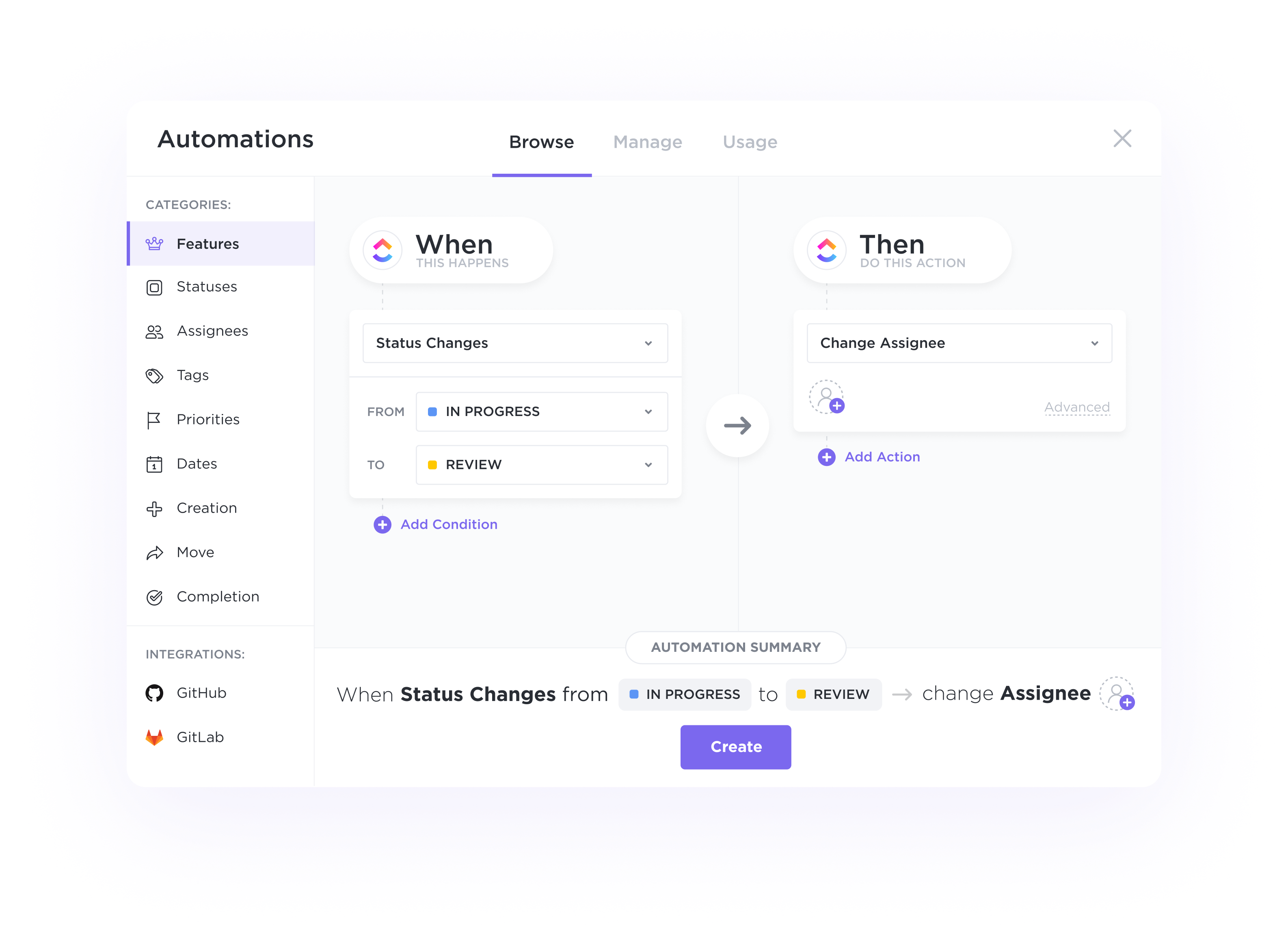Automations
Automate handoffs, status updates, and more.
Automatically assign tasks for each stage of your pipeline, trigger status updates based on activity, and switch priorities to alert your team on where to focus next.

Gantt Charts
Transform your hospital management process with ClickUp's customizable CRM system. Streamline patient interactions, manage appointments efficiently, and enhance overall workflow with our user-friendly platform. Take your hospital's customer relationship management to the next level with ClickUp.
Free forever. No credit card.
Automations
Automatically assign tasks for each stage of your pipeline, trigger status updates based on activity, and switch priorities to alert your team on where to focus next.

Relationships
Create your ideal system to store and analyze contacts, customers, and deals. Add links between tasks, documents, and more to easily track all your related work.

A CRM for hospital management can serve as a centralized platform where all patient information, including medical history, treatment plans, test results, and appointments, is stored. This centralization ensures that all healthcare providers have access to up-to-date and comprehensive patient data, leading to better coordination of care and improved patient outcomes.
CRM software can streamline the appointment scheduling process by allowing patients to book appointments online, sending automated reminders, and optimizing the scheduling based on physician availability and patient preferences. This reduces no-shows, optimizes clinic workflow, and enhances the overall patient experience.
CRM systems facilitate communication with patients through various channels like email, SMS, and patient portals. This allows for timely follow-ups, sharing educational resources, and providing important updates, ultimately improving patient engagement and satisfaction with the healthcare services.
CRMs can assist in managing referrals to specialists, labs, or other healthcare facilities by tracking the referral process, sharing relevant patient information securely, and ensuring seamless collaboration among healthcare providers. This improves continuity of care and enhances the patient referral experience.
CRM software designed for hospital management can help in ensuring compliance with healthcare regulations and standards by providing features for data security, audit trails, and reporting. This helps hospitals maintain data integrity, protect patient privacy, and adhere to regulatory requirements.
CRM software can improve patient management in hospitals by centralizing patient information, streamlining communication between healthcare providers, enhancing appointment scheduling and reminders, facilitating follow-up care, and enabling personalized treatment plans based on comprehensive patient data.
When choosing a CRM software for hospital management, look for features such as patient data management, appointment scheduling, electronic health records integration, billing and invoicing capabilities, and reporting and analytics tools to streamline operations and improve patient care.
CRM software can facilitate communication between doctors, nurses, and other healthcare professionals by providing a centralized platform for sharing patient information, coordinating care plans, and tracking interactions, leading to improved collaboration and efficiency in a hospital setting.